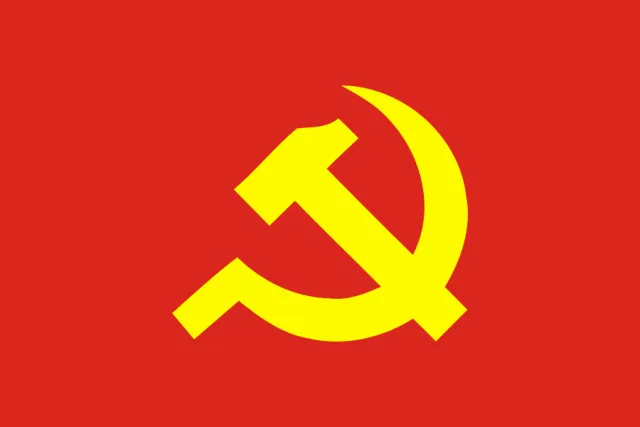越南共产党The Communist Party of Vietnam

The Communist Party of Vietnam (CPV, Đảng Cộng Sản Việt Nam) is the sole governing party in Vietnam, guiding the country's political, economic, and social development since its founding. Established on February 3, 1930, by Ho Chi Minh under the influence of the Communist International, the party initially emerged as the Vietnamese Communist Party before undergoing name changes to reflect its expanding revolutionary aims and territorial scope.
Renamed the Indian National Communist Party in October 1930 and later the Vietnam Labor Party in 1951, it eventually adopted its current title, the Communist Party of Vietnam, in 1976 following the reunification of North and South Vietnam. The CPV played a pivotal role in Vietnam's struggle for independence against colonial powers, notably leading the August Revolution in 1945 and subsequent wars of resistance against France and the United States.
Structured around Marxist-Leninist ideology, the CPV operates through a centralized hierarchy with the National Congress as its highest authority, convening every five years to elect the Central Committee, which in turn appoints the Politburo and the General Secretary, the party's top executive. The party emphasizes unity, discipline, and the principle of democratic centralism.
Throughout its rule, the CPV has navigated the country through various economic models, transitioning from a centrally planned economy to the Đổi Mới (Renovation) policy in 1986, which introduced market-oriented reforms while maintaining socialist orientation. This transformation has spurred significant economic growth and development, lifting millions out of poverty, yet the party continues to face challenges related to corruption, inequality, and demands for political liberalization.
The CPV's commitment to maintaining its leadership role while adapting to global changes is reflected in its ongoing efforts to strengthen internal unity, promote economic competitiveness, and address social issues. It actively engages in international relations, seeking cooperation while preserving Vietnam's independence and socialist identity, thereby illustrating the complex balance between ideology, pragmatism, and the demands of modern governance.
文献出处:
https://baike.baidu.com/item/%E8%B6%8A%E5%8D%97%E5%85%B1%E4%BA%A7%E5%85%9A?fromModule=lemma_search-box

 CN
CN

